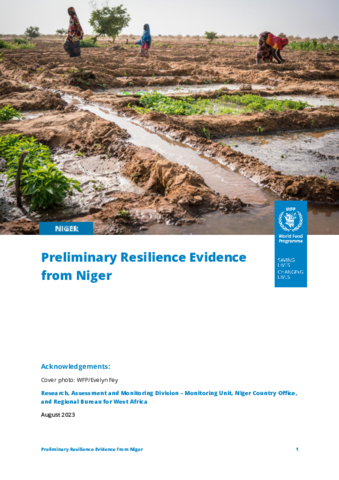
As a prominent part of WFP’s Changing Lives agenda, resilience programming shapes and supports elements of the humanitarian-development-peace nexus. Evidence on resilience programming aims to show how people, institutions or systems are more resilient in the face of a shock or stressor. While generating evidence related to resilience outcomes is essential to support strategic decision making, this learning is limited across WFP’s programmes. To support this necessary work, WFP’s Field Monitoring Unit (RAM-M) in collaboration with the Asset Creation, Livelihoods and Resilience Unit (PROR-L) and Regional Bureaux developed a Resilience Monitoring, Measurement and Evidence Generation (RMME) approach to better understand WFP’s contribution to building resilience in target populations.
This case study is a practical example of resilience evidence generated in the particularly dynamic context of Niger where the food security environment and security situation has degraded significantly since the start of the Integrated Resilience Programme in 2014.
| Document | File |
|---|---|
| Draft Resilience Toolkit |
HTML | 35.43 KB
Download
|
